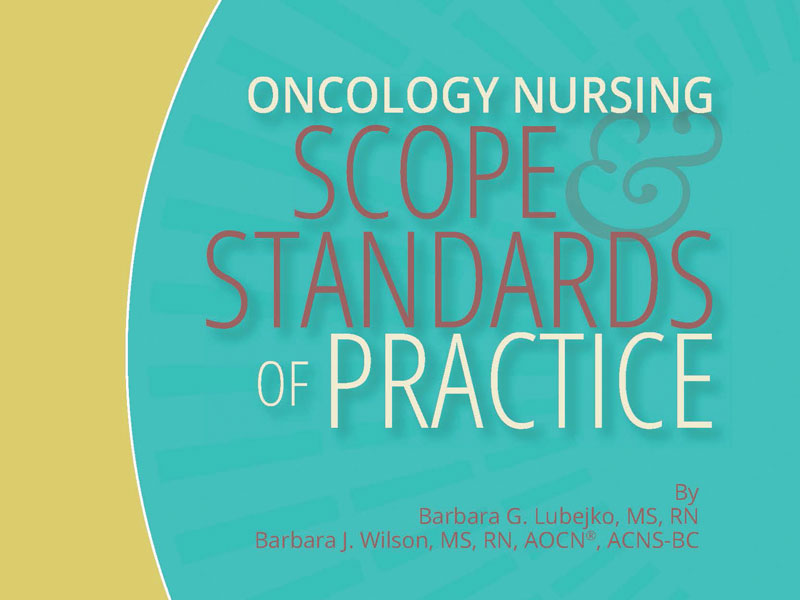What’s ONS’s Stance on Oncology Nursing Certification?

For many RNs working in oncology settings, certification might seem like the next step for their career and their commitment to patient-centered care. It’s important to understand the process of certification, along with what resources are available to help them succeed. ONS believes that oncology nursing certification benefits everyone in the cancer care continuum—from patients to family members to the nurses themselves and their employers. Certification shows that a nurse has voluntarily met the rigorous requirements for gaining cancer-based knowledge and experience and is prepared to provide high-quality, competent care to patients with cancer. It acknowledges a nurse’s commitment to career development and dedication to patient care in a constantly changing healthcare environment.
Kentucky Illustrates Success of Medicaid Expansion

The state of Kentucky has seen some of the most success in reducing its uninsured rate thanks to the Affordable Care Act’s Medicaid expansion that took effect on January 1, 2014. The results of a new study, published in the Journal of the American College of Surgeons, showed that as the number of insured individuals rose, so too did important cancer screening rates.
The Value of Oncology Nurse Certification

Oncology care is a complex field in a constant state of paradigm shifts, where new information and research affect clinical practice in countless ways. Amid rapid developments in treatments, technologies, and patient-care modalities, oncology nurses must show they’re up to date with emerging knowledge in their field. Oncology nurse certification is one way nurses can demonstrate their commitment to the art and science of patient-centered oncology care.
ONS Remains a Financially Strong Organization Into 2019

Cancer care is evolving rapidly, and ONS is committed to providing oncology nurses with tools to stay abreast of innovative treatments and technologies used to care for people with cancer. The ONS Board of Directors has both strategic and stewardship responsibilities for the fiscal health of the organization that will help us to meet those goals.
Government-Led Drug Pricing; CMS Reimbursement Updates; Playing Cards Reaction

As Washington attempts to address the soaring costs of prescription medications, some experts are attempting to shed light on the many complicated aspects of the drug pricing issue. The free-market system has countless moving parts, and perhaps so-called big government ownership isn’t the answer to inflating drug costs. As the author aptly states, “From a public-relations standpoint, drug companies are often their own worst enemies. Occasionally, a breathtakingly awful company taints the image of the whole industry.”
- Read more about Government-Led Drug Pricing; CMS Reimbursement Updates; Playing Cards Reaction
- Add new comment
Updated Scope and Standards Represent Key Foci of Oncology Nursing Practice

To ensure that the Oncology Nursing: Scope and Standards of Practice are consistent with overall nursing standards and to increase the visibility of the oncology nursing standards in the greater nursing and healthcare communities, ONS released an updated version of its reference book in March 2019. The American Nurses Association (ANA) recognizes oncology nursing as a nursing specialty, and the new edition carries ANA’s approval of the oncology nursing scope of practice and acknowledgement of the oncology nursing standards of practice.
- Read more about Updated Scope and Standards Represent Key Foci of Oncology Nursing Practice
- Add new comment
Prevent Important Information From Getting Lost in Translation

At the heart of patient-centered cancer care is communication and understanding, and oncology nurses have a responsibility to ensure that their patients have all the information they need to successfully navigate their cancer journey. But what happens when language barriers inhibit the flow of information between patient and practitioner?
How APRNs Can Manage Immunotherapy-Related Hypophysitis in Patients With Cancer

Immunotherapy may place patients at risk for distinctive toxicities that differ from traditional chemotherapy. One example is endocrine dysfunction, including hypophysitis, hypo- or hyperthyroidism, type 1 diabetes, and primary adrenal insufficiency.
- Read more about How APRNs Can Manage Immunotherapy-Related Hypophysitis in Patients With Cancer
- Add new comment
Tachycardia Tied to Higher Mortality in Patients With Cancer

Rates of all-cause mortality in patients with cancer increase in the presence of unexplained sinus tachycardia, the results of a new study show. Researchers presented the findings at the Advancing Cardiovascular Care of the Oncology Patient conference held January 2019 in Washington, DC.
Board Makes Plans for Strategic and Leadership Growth

It was a full agenda for the ONS Board of Directors’ February 2019 in-person meeting, during which critical discussions and decisions about ONS and oncology nursing occurred.





